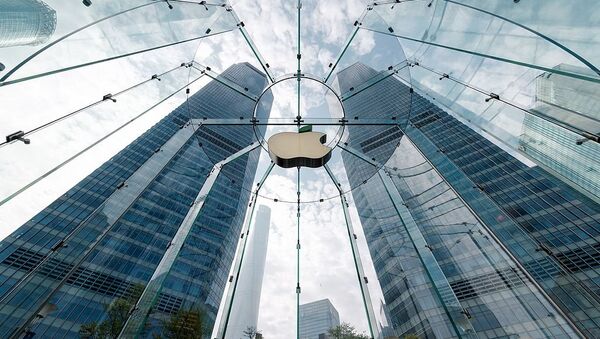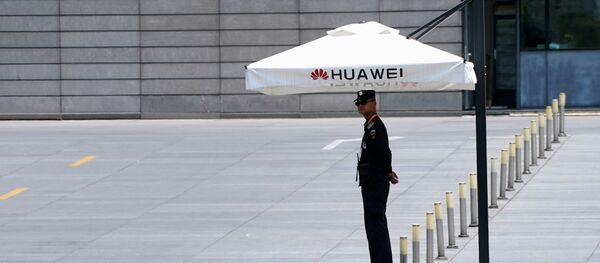Apple's iPhone sales in China could decline by as much as 50% during the second half of 2019 in light of the simmering trade tensions between Beijing and the United States, according to a report from Citi.
"We are proactively slashing our iPhone unit sales as we believe the US/China trade situation will result in a slowdown of Apple iPhone demand in China as China residents shift their purchasing preference to China's national brands," Citi analyst Jim Suva wrote in a client note.
READ MORE: Social Media Abuzz as China's State TV Delivers Stance on Trade Row with US
In addition, Suva, who reiterated his "buy" rating for the California-based company but trimmed his price target from $220 to $205, said that Chinese consumers see iPhone as less desirable as a brand image.
"China represents 18 percent of Apple sales, which we believe could be cut in half", the analyst continued.
He previously forecast sales of roughly 14.5 million iPhones in China in the second half of the year, but now he estimates that just over 7.2 million units will be sold.
According to Bloomberg, its most obvious target is Huawei's American rival, Apple, which gets approximately a fifth of its revenue from China and manufactures its smartphones there. The media outlet cited Dan Ives, an analyst at Wedbush Securities, as saying that potential retaliation from China could cost Apple 3-5 percent of its iPhone sales in the Asian country over the next 12 to 18 months.
As speculations kept flooding in, Huawei founder Ren Zhengfei told Bloomberg Television earlier this week that he would object to any retaliatory move against Apple.
"That will not happen, first of all. And second of all, if that happens, I'll be the first to protest. Apple is the world's leading company. If there was no Apple, there would be no mobile internet. If there was no Apple to help show us the world, we would not see the beauty of this world. Apple is my teacher. It's advancing in front of us. As a student, why should I oppose my teacher? I would never do that", he said.
The development comes nearly two weeks after US President Donald Trump issued an executive order that added Huawei and its 70 affiliates to a trade blacklist, thus barring the Chinese tech behemoth from acquiring technology or components from American companies without the US government's consent.
READ MORE: Rare Earths Market Could Become Next Victim of US-China Trade War — Scholar
Following the move, Google had to suspend operations with Huawei, including the transfer of all hardware, software and technical services, except those publicly available via open source licensing.
The standoff between Huawei and the US comes against the backdrop of the ongoing trade dispute between Washington and Beijing, with the Trump administration threatening to slap increased 25 percent tariffs on Chinese goods.
Earlier this month, the US Trade Representative's office revealed a list of additional Chinese products worth $300 billion that would be targeted by increased penalties. China, in turn, warned that it would introduce tariffs on $60 billion worth of American goods in retaliation for higher US taxation (from 10 percent to 25 percent) on Chinese products.
Washington and Beijing have been mired in a trade dispute since Trump imposed 25 percent tariffs on up to $50 billion worth of Chinese goods in June 2018 in order to fix what he described as "unfair trade practices". Since then, both sides have implemented several rounds of quid pro quo measures.



